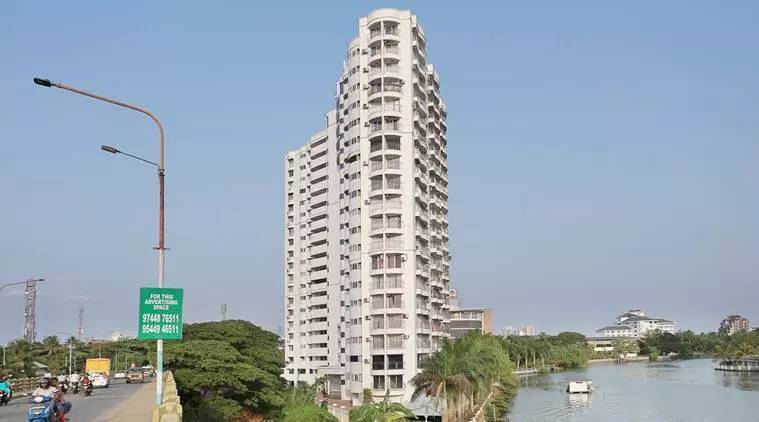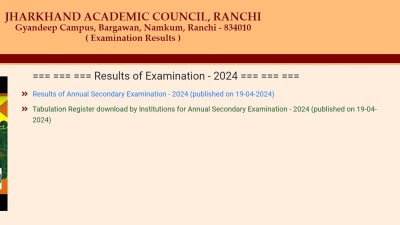- India
- International
Life savings put in flats ordered razed, these Kochi residents have nowhere to go
Ever since the court order, many have not even stepped out of their homes. “All of us are under severe mental agony. You see people breaking down. Many don’t have the courage to address this predicament,” said 38-year-old Biyoj C who has been in one of the apartments since 2014.
 4 apartment complexes are to be razed for CRZ violation.
4 apartment complexes are to be razed for CRZ violation.
For two decades, engineer Joyson E Pallen toiled in the shipping sector, setting aside money for a home in Kochi. Twelve years ago, he bought an apartment in an all-new complex in Maradu, part of the Kochi urban conglomeration, and moved in with his family. This was where he would spend the rest of his life. Or, so he thought.
Two days ago, when the Supreme Court rejected petitions seeking review of its May 8 order to tear down five apartment complexes in Maradu for violating Coastal Regulation Zone (CRZ) norms, Joyson’s world started falling apart.
Like Joyson, uncertainty has gripped residents of some 350 apartments of Alfa Serene, Holy Faith H2O, Golden Kayaloram and Jain Housing — the fifth developer never built the complex though he had the initial go-ahead — who say they have nowhere to go because most had put their life savings in these homes.
“The order was totally unexpected. I don’t know where to go with my wife and two children, both in college. We have no other place to go. If we are thrown out, there is no other option but to… Before buying the flats, we all took legal opinion and examined all documents. Even the bank which financed my flat did not find any fault. I invested Rs 65 lakh. Who gains if these houses are demolished?’’Joyson said.
The four apartment complexes are home to elderly couples, widows, even young professionals who took heavy loans from banks.

Ever since the court order, many have not even stepped out of their homes. “All of us are under severe mental agony. You see people breaking down. Many don’t have the courage to address this predicament,” said 38-year-old Biyoj C who has been in one of the apartments since 2014. “We purchased the flats through legal routes and have been paying tax to the local body after occupying the houses. If government officials have furnished wrong reports, we should not be punished,’’ he said.
Explained: Coastal Regulation Zone: How rules for building along coast have evolved
Another resident, who did not want his identity revealed, said he had spent 30 years in Kuwait before purchasing an apartment for Rs 70 lakh. He had also sold his family property in Pathanamthitta district. “I sold my property to marry off two daughters. With the remaining money and the bank loan, I bought this flat. If it is going to be demolished, I don’t know what to do. Even five-star hotels have come up close to water bodies. But action is being taken only against these flats only. The builders have got their money and the government agencies their tax, but we are not allowed to live here. Is this justice?’’ he said.
Noor Muhammed, a representative of the residents, said they were meeting Saturday to decide the next step. “Since the apex court has rejected the review petition, we are afraid to speak on the issue,’’ he said.
Kerala Local Self Government Minister A C Moitheen said the government wants to protect the families: “The flats will not be demolished in haste because that will also lead to environmental issues. IIT-Madras has been entrusted the task of studying the environmental impact of the demolition. The government will act only after getting that report.
Alfa Serene, Holy Faith H2O, Golden Kayaloram and Jain Housing projects were granted building permits in 2005-06 when the Maradu local self-governing body was a panchayat. At that time, the High Court, in another matter, had stated that the coastal zone mapping of Maradu was wrong. Since the order was still standing, the builders went ahead with construction.
Subsequently, the vigilance wing of the local self-government department detected anomalies in building permits and wanted the permits cancelled. In 2012, the matter reached the Kerala High Court which observed that permit holders cannot be taken to task for the failure of local authorities in complying with statutory provisions and notifications.
When the state Coastal Zone Management Authority moved the Supreme Court, the apex court noticed that there was no categorical finding recorded on whether the area in question was in CRZ Category III, Category II or Category I. The builders claimed that the area fell within CRZ Category II whereas the Coastal Zone Management Authority said the area was in CRZ Category III.
Subsequently, the Supreme Court appointed a three-member committee which said that the Coastal Zone Management Plan (CZMP) of Kerala currently applicable was the one approved in 1996. Under that CZMP, Maradu had been marked as a panchayat area and, therefore, was in CRZ Category III. Therefore, construction could not be allowed up to 200 metres from high tide line.
Apr 19: Latest News
- 01
- 02
- 03
- 04
- 05






































